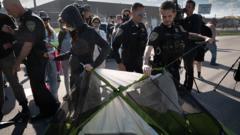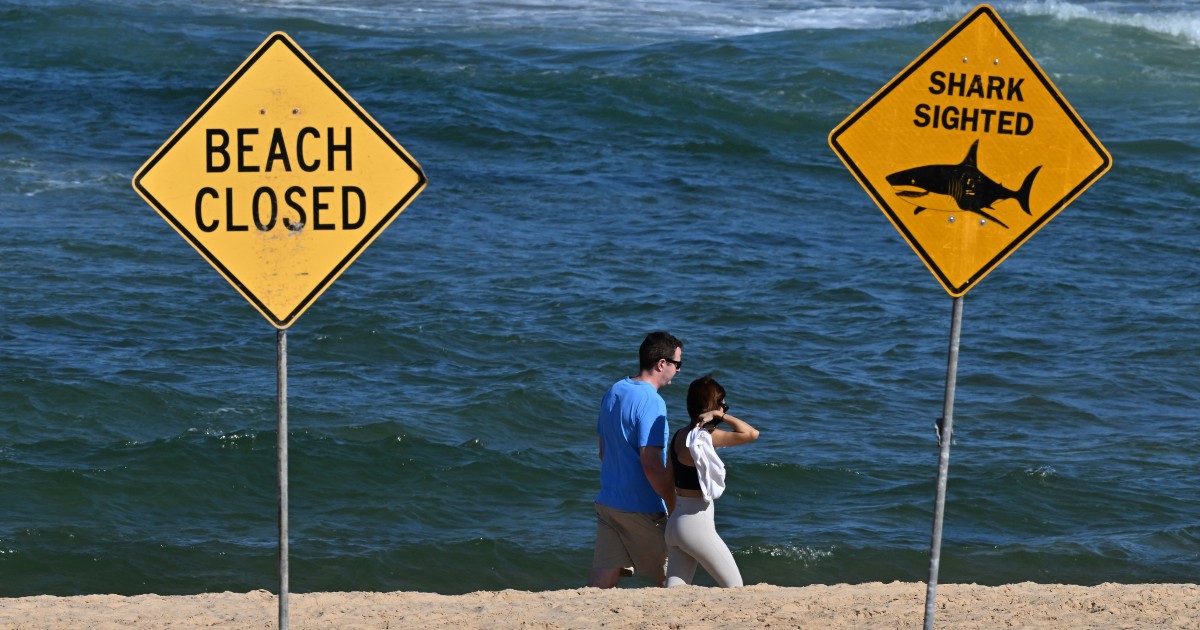Could Trump's National Guard Deployment Heal or Divide Chicago's Communities?

Published: 2025-09-06 06:07:05 | Category: wales
The South Side of Chicago is currently embroiled in a complex battle against violent crime, where community leaders and residents are striving to reclaim the safety of their neighbourhoods. Amidst this backdrop, President Trump's threat to deploy National Guard troops to combat crime has sparked a contentious debate about effective solutions. While some residents welcome the military presence, many local advocates argue that true change must come from within the community itself.
Last updated: 27 October 2023 (BST)
Key Takeaways
- Violent crime in Chicago has seen a recent decline, despite the city's challenges.
- Community leaders argue that local solutions are more effective than military intervention.
- President Trump's proposed deployment of National Guard troops is met with mixed reactions.
- Funding cuts to crime prevention programmes are a significant concern for local leaders.
- The community's fight against crime is shaped by its own residents, who are committed to change.
The Current Landscape of Crime in Chicago
In recent months, Chicago has been grappling with a surge in violent crime, particularly during holiday weekends when incidents tend to spike. The Labour Day weekend witnessed at least 58 shootings, resulting in eight fatalities. This alarming statistic has prompted President Trump to threaten military intervention as a means to restore order in the city.
Local Responses to Crime
Rob White, a coach for young men in Chicago, is an example of the local grassroots efforts aimed at combating gang violence and fostering community resilience. White's programme, Chicago CRED, actively works with individuals who have been affected by violence, encouraging them to seek positive paths. His belief that "we are the troops" underscores the importance of community-led initiatives in addressing crime.
Trump's Proposed Intervention
Trump's announcement regarding the deployment of National Guard troops has been met with scepticism from local officials. Governor JB Pritzker has labelled the move as "unhinged," while Chicago Police Superintendent Larry Snelling has pointed out the limitations of the National Guard, stating they lack police powers and would require extensive coordination with local law enforcement.
Crime Statistics and Trends
Despite the recent violence, it is crucial to note that crime rates in Chicago have actually been decreasing. According to the Council on Criminal Justice, the homicide rate fell by a third in the first half of the year compared to the previous year, with significant reductions in shooting incidents as well. This contradicts the narrative of an "out of control" crime wave that Trump has portrayed.
Community Perspectives on Military Presence
In neighbourhoods like Canaryville, opinions about military intervention vary significantly. While some residents, like Tom Stack, express eagerness for the arrival of the National Guard, others, including community leaders, advocate for a more nuanced approach. They argue that militarisation may not address the root causes of crime.
Funding Cuts and Their Impact
A critical aspect of the ongoing debate revolves around funding for crime prevention programmes. Local leaders have voiced concerns about cuts made by the Trump administration to essential initiatives aimed at reducing gun violence. These cuts have reportedly hindered efforts to tackle issues such as weapons trafficking, particularly from states with looser gun laws.
The Role of Community Leaders
Community leaders like Kanoya Ali echo White's sentiments, stressing that the real change must come from within the community. They firmly believe that empowering local youths and providing them with the tools to succeed is the key to breaking the cycle of violence. Ali's assertion that "the outcome is already happening" reflects a growing confidence in the community's ability to effect change.
Challenges Facing Community Initiatives
Despite their dedication, community programmes face numerous challenges. Funding limitations, coupled with the ongoing stigma surrounding certain neighbourhoods, often hinder the reach and effectiveness of these initiatives. Moreover, the perception of crime can overshadow the positive strides being made by local organisations.
What Comes Next?
As Chicago navigates this turbulent period, the question remains: how will the community balance the need for safety with the desire for self-determination? The deployment of National Guard troops, while intended as a solution, may complicate the relationship between residents and law enforcement. Moving forward, it will be essential for local leaders, residents, and policymakers to collaborate on sustainable strategies that prioritise community well-being over militarisation.
FAQs
What are the recent crime statistics in Chicago?
During the Labour Day weekend, Chicago reported at least 58 shootings, with eight fatalities. However, crime rates, particularly homicides, have decreased significantly over the past year.
What is Chicago CRED?
Chicago CRED is a non-profit organisation that aims to reduce gun violence by working with at-risk young men. The programme focuses on providing support and alternatives to gang involvement.
Why are community leaders against the deployment of National Guard troops?
Community leaders argue that military intervention does not address the underlying issues of violence and that local solutions, empowerment, and prevention efforts are more effective in creating lasting change.
How have funding cuts impacted crime prevention in Chicago?
Funding cuts to crime prevention programmes have limited resources for initiatives aimed at reducing gun violence, particularly those targeting weapons trafficking from states with more lenient gun laws.
What is the relationship between local crime rates and community initiatives?
Local crime rates can be influenced by the effectiveness of community initiatives. Successful programmes can lead to a decrease in violence, as they focus on empowering individuals and providing alternatives to criminal behaviour.
As Chicago faces its ongoing struggles with crime, it becomes increasingly clear that the solutions must be rooted in the community itself. With dedicated leaders and committed residents, there is hope for a brighter future. #ChicagoCrime #CommunityAction #GunViolencePrevention


